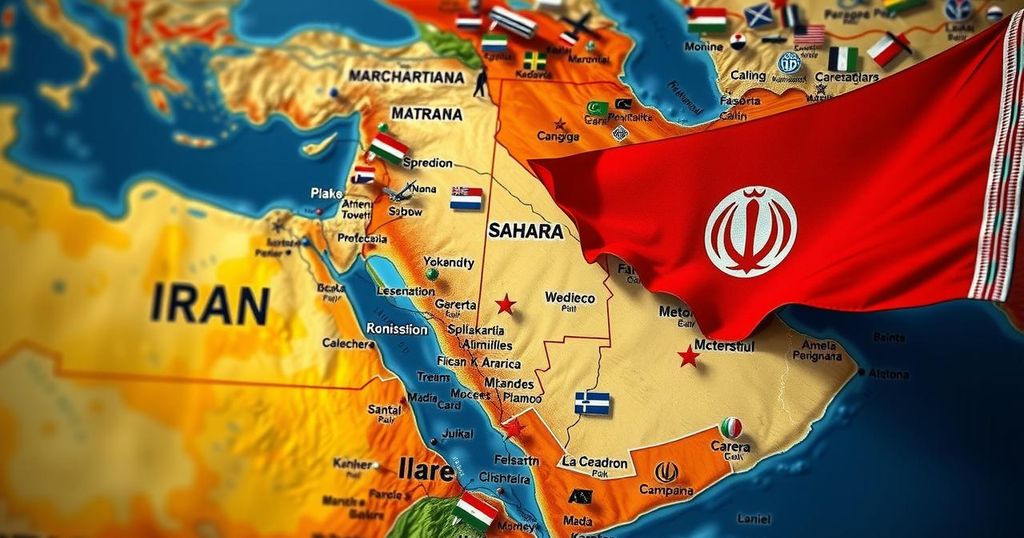The article outlines the anticipated positive shift in US-Morocco relations with Trump’s presidency, particularly regarding the Western Sahara conflict. It analyzes the implications of his previous recognition of Moroccan sovereignty and explores potential economic partnerships that could deter Iranian influence while supporting Moroccan governance. Amidst evolving regional tensions and public sentiment, the article emphasizes the need for a proactive US engagement strategy.
The victory of President-elect Donald Trump is perceived positively for US-Morocco relations, particularly regarding the contentious issue of Western Sahara. In December 2020, Trump recognized Moroccan sovereignty over Western Sahara—an act that King Mohamed VI lauded, expressing gratitude for America’s longstanding support. There is anticipation that the Trump administration will continue this recognition while negotiating favorable terms with Rabat, potentially involving increased US investment in Western Sahara.
Moroccan officials are eager for a departure from what they view as the Biden administration’s ambiguous stance toward Western Sahara, which has prioritized the US’s energy concerns, particularly regarding Algeria’s gas exports. The Biden administration modified Trump’s previous initiatives by reducing diplomatic representation in Western Sahara, which some believe has allowed Iran to strengthen its influence in the region by supporting the Polisario Front.
Morocco’s alignment with Israel in 2020 was strategic, aimed at countering Iranian influence rather than undermining Palestinian support. Despite public protests over the Gaza conflict, Moroccan leadership views Iranian-backed proxy militias as a direct threat to regional stability. In this context, strengthened US-Morocco ties could prevent Iranian ambitions from jeopardizing the Sahara and enhance economic prospects by investing in infrastructure projects.
The re-examination of foreign policy measures to counter Iranian proxies entails maximizing collaboration with countries already allied with Morocco, including France and Spain. Such alliances help to neutralize the threat of Iranian-backed militias in North Africa while promoting regional economic stability through integrated projects like the Dakhla harbor megaproject. It may also benefit the US militarily, by considering relocating the US Africa Command to Morocco, allowing for better coordination in regional security initiatives.
In conclusion, while the Western Sahara conflict may not be the immediate priority for the next Trump administration, it presents significant opportunities for the United States to strengthen bilateral relations with Morocco. Encouraging Morocco’s position can deter Iranian ambitions, promote regional stability, and unlock economic potential, providing a comprehensive approach to a complex geopolitical landscape.
The article discusses the implications of President-elect Donald Trump’s administration for US-Morocco relations, particularly in the context of the Western Sahara dispute. Trump’s recognition of Moroccan sovereignty over Western Sahara in exchange for normalization of relations with Israel marked a pivotal moment in U.S. foreign policy. The article elaborates on the current political dynamics between Morocco, the US, and Iran, highlighting the role of Iranian support for the Polisario Front and the broader regional implications, including the rising tensions due to public sentiments towards Israel in Morocco.
The incoming Trump administration possesses a significant opportunity to shift US-Morocco relations positively amid the ongoing Western Sahara conflict. By reinforcing support for Moroccan sovereignty, addressing the challenges posed by Iranian influence, and exploring economic collaborations, the United States can effectively strengthen its strategic position in North Africa. This approach not only aids the resolution of the conflict but also secures broader geopolitical stability.
Original Source: www.atlanticcouncil.org






